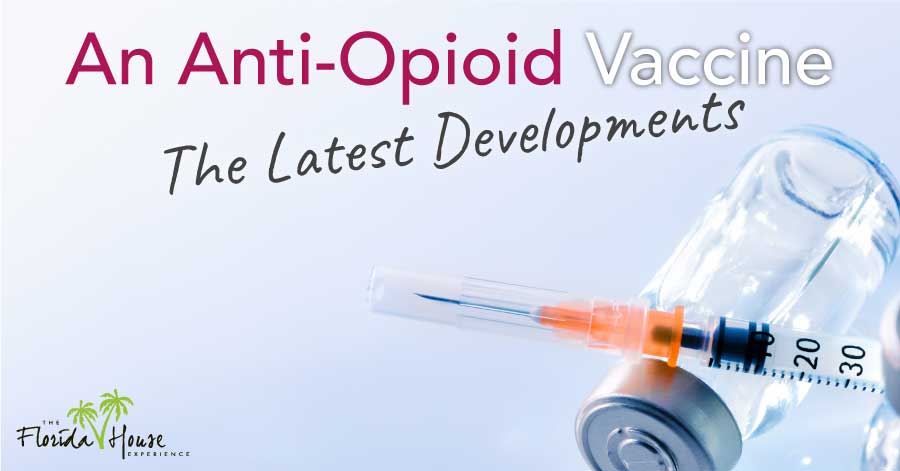
When we think of vaccines, we immediately think of infectious diseases like the measles, mumps, pertussis and polio. But now, Scripps Research Institute researchers have developed a possible anti-opioid (addiction) vaccine involving monoclonal antibodies to prevent opioid addiction in at-risk individuals. Afterall, we often hear that ‘addiction is a disease‘ right?
Monoclonal antibodies are created in the laboratory to act as “substitute” antibodies. These special antibodies are designed to mimic, improve or restore the ability of the immune system to attack disease-carrying cells.
Currently, monoclonal antibodies are used to treat different kinds of cancer, such as breast, brain, lung and colorectal cancer. Studies involving this experimental anti-opioid vaccine and mice have shown it may be effective against fentanyl, carfentanil and other fentanyl analogs.
Anti-Opioid Study Highlights
After mice were injected with the vaccine, researchers applied a heated light beam to mice tails. They then measured how long it took for vaccinated mice given fentanyl to withdraw their tail from the heat. Quicker than expected reactions indicate the vaccine seemed to block analgesic effects of fentanyl.
Mice given fentanyl without the vaccine moved their tail away from the heat much more slowly than mice given the vaccine. This indicated that mice high on fentanyl could not sense pain normally.
When mice were injected with the anti-opioid vaccine, the tail withdrawal was quick and normalized. Researchers think this shows that the vaccine was indeed blocking the pain-relieving effects of fentanyl. Additional testing with mice and the anti-opioid vaccine involved the efficacy of the vaccine with protecting against opioid overdose. Results found the vaccine did counteract a potentially fatal opioid overdose.
Although researching medical treatments using mice provides starting points for determining the effectiveness of the treatment, they do not provide the same results provided by humans as research subjects. Consequently, Scripps Research Institute researchers have begun developing human antibodies to prevent addiction to fentanyl and other opioids.
An anti-opioid vaccine would also reduce the risk of healthcare professionals, first responders and law enforcement from inadvertently coming in contact with fentanyl. Just a few grains of fentanyl is enough for someone to suffer from its side effects.

A Vaccine Against a Cocaine Addiction?
The emerging field of substance abuse vaccines represents the bleeding-edge territory in the fight against all drug addictions. Research regarding vaccines designed to treat nicotine and cocaine dependence is currently ongoing. Methamphetamine and heroin vaccines are also in preclinical testing stages.
Cocaine Vaccine TA-CD
The cocaine vaccine TA-CD contains special molecules called cocaine haptens that interact with cholera toxin B to produce cocaine-specific antibodies. This vaccine creates an immune (molecular) complex that cannot cross the blood-brain barrier because the molecules are too big to pass through the barrier. Consequently, these molecules are broken down by enzymes outside the brain, converted to inactive metabolites and eventually eliminated by the body.
In a phase I clinical study, 34 subjects received injections of the TA-CD vaccination. Laboratory testing found the subjects exhibited an immunologic response that produced cocaine-specific antibodies. In addition, participants reported a reduced sense of euphoria and pleasure after smoking cocaine and taking the vaccine.
Another clinical study involving two different doses of TA-CD found that participants receiving higher doses developed more antibodies and were more likely to abstain from using cocaine than members of the lower-dose group.
Currently, medications meant to combat opioid addiction are themselves opioids–Suboxone® and methadone for example. Unfortunately, prescribing a medicinal opioid to help a heroin, fentanyl or painkiller addict recover isn’t without risk. It sometimes results in the addict becoming dependant on another drug.
FDA approval of an anti-opioid or anti-cocaine addiction vaccine would dramatically decrease the number of drug addicts and overdose deaths in the U.S. and worldwide. Ensuring that everyone at risk for addiction has easy and immediate access to these vaccines will also be essential for reducing addiction rates and ending the opioid epidemic.






